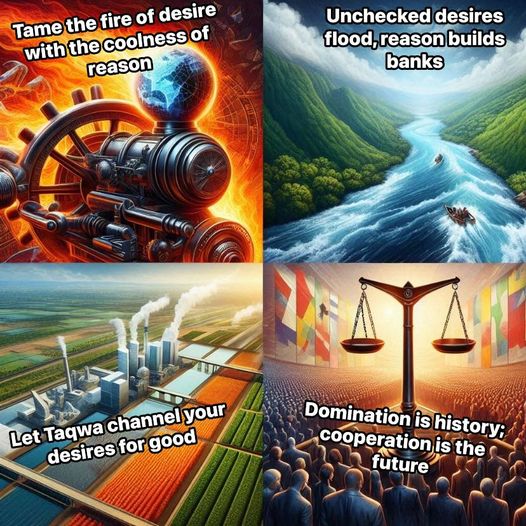
Desire plays a crucial role in shaping one’s personality, acting more like the oil that keeps an engine running smoothly rather than the driver who steers the course. While desire can provide the necessary drive, succumbing to it without thought leads to ruin. Positive desires nurture our character, whereas negative ones harm it. It is essential to use reason to scrutinize our desires, weighing them against reality and their possible outcomes. Just as a lighthouse guides ships through treacherous waters, reason helps us see the true nature of things, and our sense of morality allows us to distinguish right from wrong and justice from injustice.
Consider desire as the fuel in a car; it powers the journey but cannot determine the direction. If the driver (our rational mind) navigates carefully, the journey is smooth and purposeful. However, if the car is left to run wild on fuel alone, it crashes, leading to disaster. Reason acts like a compass, providing clarity and direction amid the haze of desire, while morality serves as the map, helping us understand the terrain of good and bad, just and unjust. Together, reason and morality ensure that our desires drive us towards growth and not into chaos.
Desire, much like fire, can warm and sustain us, but left unchecked, it can consume everything in its path. It is the flickering flame that needs to be managed with the cold logic of reason, the fireguard that keeps the blaze from spreading beyond control. This balance between the warmth of desire and the coolness of reason is crucial in the forge of our character.
Anything which is made part of human nature can be controlled but not eliminated. The desire to dominate is immense, and humans want to break out of all confinement as this natural instinct is very demanding. This urge is like a powerful river current; it can either be channeled to irrigate and nourish or, if unchecked, can flood and destroy. Religion does not eradicate innate urges within people; it only brings those instincts in order. In Islamic tradition, we use the word ‘Taqwa’. This means being conscious and cognizant of the Almighty, making sure we don’t cross the limit. Taqwa is like the banks of the river, guiding the powerful flow of our desires to ensure they benefit rather than harm.
The age of conquest was driven by our desire to dominate, like untamed beasts roaming for territory & occupation. In the globally connected world, we should control this desire for domination. Domination of one nation over another or one group over another are relics of the past, much like ancient relics locked away in museums, they are reminders of what we should avoid. In today’s world, cooperation and mutual respect should be the new banners under which we unite, ensuring our desires are harnessed for collective progress rather than individual conquest.

